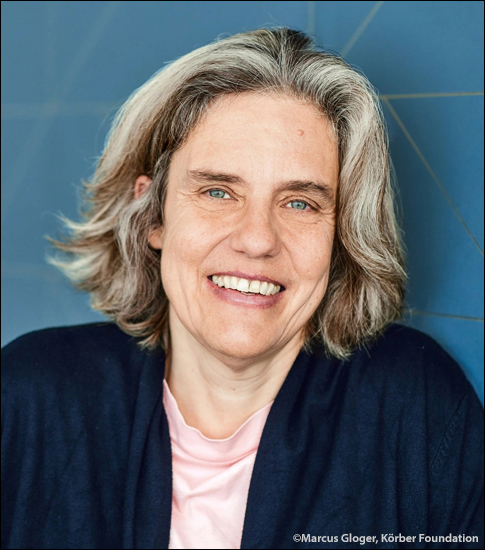Helping Computers Perceive and Interact with the Visual World
Inria’s Cordelia Schmid Honored for Key Techniques Underlying Computer Vision
ACM has named Cordelia Schmid, Research Director at Inria, the French National Institute for Research in Digital Science and Technology, as the 2025-2026 ACM Athena Lecturer. Schmid is recognized for outstanding contributions to computer vision in image retrieval, object recognition, and video understanding. Her work has helped computers understand, perceive, and interact with the visual world.
Initiated in 2006, the ACM Athena Lecturer Award celebrates women researchers who have made fundamental contributions to computer science. The award includes a $25,000 honorarium provided by Two Sigma.
Computer Vision
Computer vision has captivated the public and enables innovative technologies in many fields today, including robotics, automated vehicles, and medicine. By employing special algorithms and massive amounts of data, this technology allows computers to recognize and interpret objects in photographs, videos, and the physical environment.
For humans, understanding visual information is a simple exercise, but for computers it’s a very difficult task. Schmid made foundational contributions to this field beginning in the 1990’s. Her early work with semi-local image descriptors helped classify textures and recognize patterns. Following on these insights, she also explored how these characteristics could be combined with spatial and geometric details.
Schmid’s later innovations helped computers recognize complex objects in a scene even when clutter or other visual objects are present. In turn, these accomplishments enabled computer vision technologies to process more complex and realistic settings.
Video Analysis
Within the broader field of computer vision, the goal of video analysis is focused specifically on recognizing actions and events in real-world video footage. Schmid’s significant contributions in video analysis include designing methods and training computers to identify such actions and events. From still images to sequences, her work has played a large role in the advancements of modern image detection that technologies from digital video cameras to industrial robotics use today.
Leadership
In keeping with the Athena Lecturer Award’s goal of honoring both technical and service contributions, Schmid is recognized for building an active research community. For example, the research groups she founded lead the world and she has contributed extensively to the field, editing its major journals and chairing its most important conferences. Schmid’s skills in mentorship and supervision are also renowned among her peers.
Read the news release|Printable PDF
About the ACM Athena Lecturer Award
The ACM Athena Lecturer Award celebrates women researchers who have made fundamental contributions to computer science. It includes a $25,000 honorarium provided by Two Sigma. The Athena Lecturer is invited to present a lecture at an ACM event. Each year, the Athena Lecturer honors a preeminent woman computer scientist. Athena is the Greek goddess of wisdom; with her knowledge and sense of purpose, she epitomizes the strength, determination, and intelligence of the “Athena Lecturers.”
2025-2026 ACM Athena Lecturer
Cordelia Schmid is a Research Director at Inria, the French National Institute for Research in Digital Science and Technology, and a Director at Google. She also serves as a Director of the ELLIS program on Machine Learning and Computer Vision and as a member of the Board of Directors for the Computer Vision Foundation.
Schmid earned a PhD in Computer Science from the Institute National Polytechnique de Grenoble (France) and an MS in Computer Science from the University of Karlsruhe (Germany). Among her many honors, Schmid is the only three-time recipient of the prestigious Longuet-Higgins Prize and a recipient of the Koenderink Prize, both awarded for fundamental contributions in computer vision. She has also received the European Inventor Award. She is a Fellow of IEEE and a Member of the German National Academy of Sciences, Leopoldina.
Media Coverage
“Enhancing Computer Vision: Enabling Machines to Understand and Engage with the Visual World"
Bioengineer, April 23, 2025
